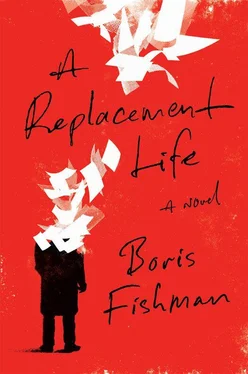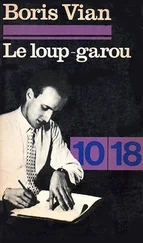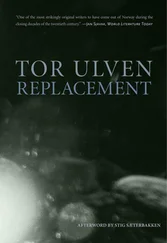The pair of tombstones in front of Slava grows apart only at the hips. Gelman, the common plinth says. Grandfather’s is blank; Grandmother’s has the poem. Her face is etched in the same pointillist style; the local Seurat must have a monopoly. Grandfather’s stone is black, Grandmother’s the stippled chestnut of a bay horse. The crown of his stone rises slightly above hers, a shoulder.
The turf is even on both sides of the plot, flecks of freshly cut grass clinging to the knees of the common stone. The custodians must have mowed since Grandfather and Berta last visited; Grandfather wouldn’t permit the flecks to remain, Berta nicking them away with her mother-of-pearl nails.
Slava sits down on the paved path that runs alongside the plots and gives his greeting to Grandmother. He decides that she does not need small talk. They will talk in a different way. He would like to meet her all over again, their recent encounters untrue. How? He opens his notebook. A blank page looks at him with doubt. Doubt enough of his own he’s got. He touches a pen to the paper, moves it off, brings it back. His untrustworthy imagination whispers to him, the sound of new treason. He listens, waits, listens, brings pen to paper again.
Q: Did I betray you by inventing all those things?
A: How? You’re being foolish.
Q: I would like you to be truthful with me.
A: No, you did not.
Q: I am here only to talk with you. There is no other reason.
A: Then why do you have the notebook?
Q: It’s how I understand things. You will live in it.
A: I live in your heart.
Q: The heart is unreliable, a notebook is forever.
A: That isn’t why. But it doesn’t matter. Write, write.
Q: When you slipped out of the ghetto, did you know you would never see your parents again?
A: No. The mind doesn’t prepare for death.
Q: Were you afraid, going to the woods? You were only fifteen. I think of myself at fifteen.
A: I was a city girl, of course I was frightened. But I don’t remember being frightened. You are in such terror that you don’t feel… anything. You move because there is something working inside you, you don’t know what. And then another day, for minutes, whole minutes at a time, it seems as if everything is normal, absolutely normal — it’s the old you, and things are just as they were…
Q: What should I say from you? To Grandfather or Mother.
A: He can’t live without your admiration. And she — call her again, for no reason.
Q: Can I bring you something?
A: This is how we used to talk when we were calling from a trip: “Can we bring something?” No — you’re here, what else do I need.
It isn’t her, because she never spoke like this. But she is no longer around to answer for herself. And so she will have to live on in the adulterated form in which he must imagine her. He cannot strip himself out of the imagining. If she is to live, she will live as Slava+Grandmother, one person at last.
“Boy! Boy!” a woman shouts as she rushes down the path, the plea of a fist in the air. She is already clothed for winter — a heavy coat, a beret on her head. “Boy,” she repeats as she draws near, out of breath. “How could you sit on the pavement like that? You will catch cold, and then what? How would your”—she squints at the grave, considers the years of birth and death—“how would your grandmother like that? Answer me.”
Slava smiles and rises. “Thank you,” he says.
“The weather’s changing,” she says. “That’s always the vulnerable time. Look after yourself. God bless you for looking in on your grandmother.”
After she disappears down an alleyway, Slava returns to the ground, though not to the pavement; after all, he has promised. He comes down to the grass, to Grandfather’s unused side of the plot, next to Grandmother. The pavement already holds the chill of autumn, but the grass is still heedless and warm, as if summer is never going to end. He thinks of Arianna, the singed grass of Bryant Park underneath them, his head on her thigh, the saxophone going off at the other end of the park, the ordinariness that hides the miraculous.
The world above is endless and blue. Slava runs his fingers through Grandmother’s side of the plot, the short, prickly grass like Grandfather’s face after a day without shaving. Her pliant, puckered flesh was so inadequate to protect the fragile body beneath it that the last time she had enough strength to go out, the sons of another family — each the size of a bureau, each overjoyed to see her well enough to come for a party — embraced her so fervidly that they broke two of her ribs.
The plastic carnations that fill Grandmother’s vase are too firm to sway in the light wind, but behind them, a thin greenish stem with a space helmet of white puff bobs in the earth. It was the costume of every meadow outside Minsk; you pinched the stem and blew the puff out like a candle. Slava can summon the name of the flower only in Russian, and in the moment before he scatters the down across what remains of his grandmother, he knows — a fact, he made it — that he will never look up the English translation. The white wisps settle like summertime snow. Oduvanchik.
My first thanks are to my grandmother. She really was better than all of us.
Then to my grandfather. A friend of mine once said, “You’re smarter than him, you’re more enlightened than him. But both of us can fit inside his left nut.” Hard to argue.
To my parents, for loving so well and for not giving up.
To Polina Shostak, a woman of singular fortitude, and the Shostak/Golod family — the only ones who remain.
To Alana Newhouse, for inspiring so much. To Annabelle, for the oxytocin. To the Liguoris of Rhode Island, my second family, and especially to the memory of Antoinette Parise, who loved Robert Frost.
To the friends who read drafts, talked shop, and held me up, especially Rob Liguori, Nicole DiBella, Vance Serchuk, Amy Bonnaffons, Chad Benson, Luke Mogelson, Kseniya Melnik, Julian Rubinstein, Ellen Sussman, Meredith Maran, Jacob Soll, Joshua Cohen, Tom Bissell, Ben Holmes, Dan Kaufman, Jilan Kamal and Justin Vogt, Joshua Yaffa and Kate Greenberg, Will Clift, Andrew Meredith, Rebecca Howell, Louis Venosta, Vica Miller, Joseph DiGiacomo, Michelle Ishay and Michael Cohen, LuLing Osofsky, Jules Lewis, Anne Gordon and Andrew Garland, Teddy Wayne, Arthur Phillips. Special thanks to Susan Wise Bauer, who spans categories and is one of the most brilliant, generous, interesting people I know.
To the teachers: Lawrence Weschler, Brian Morton, David Lipsky, and, especially, Darin Strauss and Jonathan Lethem, two of the greatest teachers (and mensches) I’ve encountered. They are not only teachers but mentors, too rare a mantle these days. I met these people because of the NYU MFA program, run by the incomparable Deborah Landau, who redefines patron. To this list, add Joyce Carol Oates, who taught me first and has remembered me always; Star Lawrence, who was the first to give me a chance; William Zinsser, who gives more without eyesight than most with it; Vera Fried, the Pink Dynamo; and the great Jim Harrison, who made me want to write.
To the residencies and organizations that so very generously gave time, and space, and sustenance by many definitions: Norton Island Residency Program in Maine; the Fine Arts Work Center in Provincetown (with special thanks to Salvatore Scibona for his insight and encouragement); La Napoule Art Foundation in France; Mesa Refuge in Point Reyes Station; the New York Foundation for the Arts; the Albee Foundation in Montauk; Wildacres Retreat in North Carolina; Blue Mountain Center in the Adirondacks; Brush Creek Art Foundation in Wyoming; Djerassi Resident Artists Program in Northern California. It’s hard to put value to what these people and institutions give to artists.
Читать дальше











